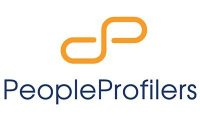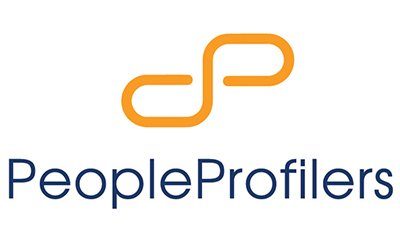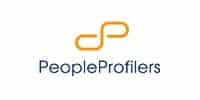Ace your interview
A step by step guide
When considering what gets one successfully hired, the number of factors that could come into play are simply staggering. From crafting a succinct and attractive resume, to sourcing and personal branding, the list goes on and on. As such, this article will focus only on what you should bear in mind regarding for the interview itself. Once you’ve got the call, to the point you leave the interview with a firm handshake, bear in mind these things listed below!
Preparing for the interview

- Present a professional appearance. While this may seem obvious, there’s a little more to this point than simply throwing on a nice shirt and a tie. Pay close attention to your grooming and your bearing. Get rid of that 5 O’ clock shadow and comb your hair. For the ladies, don’t overdo your makeup and do your hair up neatly. There’s a lot to be said for first impressions, and it’s difficult to take an interviewee seriously if it looks like you just stumbled out of bed.
- Prepare your portfolio. The last thing you’d want is for your interviewer to be more familiar with your resume than yourself. Know the qualifications that you purport to have, and be well versed in where your documents are located and the story you wish to tell.
- Practice your answers. Remember, an interview is nothing more than a formal conversation. It is important to know how to answer common questions such as “Why did you apply for this position?”, or “What do you think makes you a good fit for this company / role?”. However, do not over-rehearse to the point that your answers seem mechanical and insincere. Focus on hitting the main points and stay natural. If 10/10 self-rehearsals sound identical, it is likely that you will be stiff and robotic in the actual interview. It is a good idea to get a friend or acquaintance to do mock interviews with you, to provide a more realistic conversational environment.
- Do your research. Ignorance is not bliss in interviews, and you should know the ins and outs of the company beforehand. Doing your homework shows that you are interested and serious about the position. The interviewer will appreciate this and doing so prevents you from stumbling when asked questions pertaining to the organisation.
- Be on time! Scrap that, be early! There’s no such thing as appearing overly enthusiastic, nor does the concept of being fashionably late exist when interviewing. Provide a buffer for getting stuck in traffic, or getting lost in the complex mazes that are corporate offices.
During the interview

- First impressions matter. Complement the smart appearance that you worked on in the previous segment with a firm handshake (Don’t crush your interviewer’s hand though!). Be friendly, polite, and wear a smile – it is your greatest accessory! Do also mind your body language. Sit erect and maintain eye contact. Slouching and twiddling your fingers shows disinterest and a lack of focus and confidence.
- Speak clearly and concisely. All your preparation is for naught if your interviewer cannot understand what you are saying. Perhaps just as criminal as being inaudible is being unintelligible. When answering questions, try not to beat around the bush. It’s fine to tell a story, but everything you say should link back to the question at hand. Relate your experiences and expertise to the role that you are interviewing for, and frame your answers in a manner that puts your best foot forward.
- Be honest. Building on the last point, do note that we ask you to put your best foot forward, not to fabricate a foot that doesn’t exist. If there are qualifications that you do not meet, do not lie about your skillset, but instead admit to your shortcoming and express an interest to learn should the opportunity present itself.
- Keep the conversation organic. If you didn’t hear the question, or didn’t quite understand what was being asked, do politely request your interviewer to repeat the question. There’s no shame in doing this, and it’s certainly a better idea than blithely answering a question you didn’t catch. Additionally, do not feel compelled to provide an answer a split second after your interviewer poses the question. Especially for more contemplative issues such as “Tell me about a time when…” or “What do you feel about…”, it is fine to let your interviewer know that you need a few seconds to think. However, don’t take too long (more than 30 seconds) or you may run the risk of appearing digressional or causing the conversation to become stale.
After the interview

- Ask questions. As much as an interview is for the interviewer to assess you, it is also for you to clarify doubts about the position and to understand what you’re getting yourself into. You may make queries regarding future progression, company practices, or the finer minutia of the job scope. Be careful not to turn it into a reverse interview, as some interviewers may not appreciate that. Also, refrain from asking questions that may implicate oneself. For example, asking how often employees work overtime may belie a reluctance on your end to do so.
- Provide easy avenues for follow up. Many interviewers may not yet have made up their mind on you by the end of the interview. If you can give them samples of your work to look over post-interview, that would help them in finalising their decision. If you’re applying for a journalistic position, provide them with articles that you’ve written. If you’re a programmer, provide them with links to your online code repositories or portfolios. The same can be said for any other profession.
- Leave a good last impression. Thank the interviewer for their time. Exit as you entered; with a firm handshake and a warm smile. Follow up with a thank you email, letter, or phone call. This helps in keeping the memory of your interview fresh in the hirer’s mind, and provides a basis for continued contact with you.
Having said all this, every interview is unique, and the personal preferences of you and your interviewer must also be considered. There is no one size fits all approach to acing your interview, but these are definitely notable points to build upon. Above all, remain professional and be sincere about your qualifications and interest in the role. Believe in yourself and be confident. Good luck, and see you on the job market!


